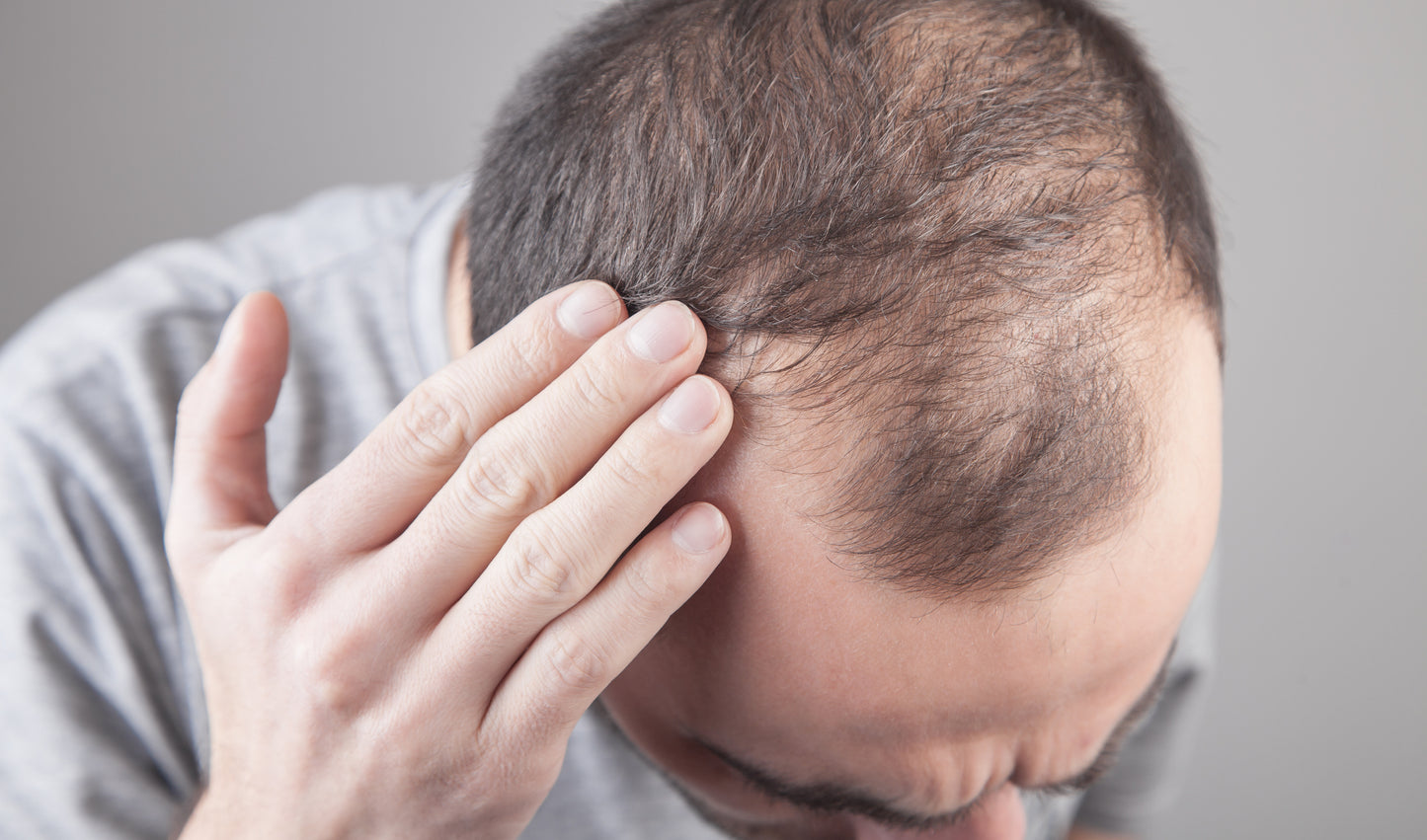Crohn's disease is an inflammatory bowel disease (IBD). It has its fair share of side effects, with many people experiencing hair loss.
But is there really a cause-and-effect relationship between Crohn’s disease and falling hair? Read on to gain a better understanding of what it is and how it can affect the hairs on your head.
Understanding Crohn's Disease
Crohn’s disease is a chronic autoimmune condition, meaning that your body’s immune system attacks your body’s healthy cells. It causes inflammation in a person's gastrointestinal tract and can wreak havoc throughout your body.
Pair that with genetics and unhealthy eating habits, and you have a hair disaster at hand. Hair loss and IBD are intimately linked so it’s not surprising that hair loss has led to the diagnosis of Crohn's disease in many people.
How Does Crohn's Disease Cause Hair Loss?
Crohn’s disease, which causes changes in immune system activity, could cause alopecia areata — another type of autoimmune disease.
People living with it may notice hair loss on their scalps and other parts of their bodies. Loss of hair usually occurs in patches and falls out in clumps although it can increase in intensity when the condition flares up and could lead to telogen effluvium.
Malnutrition
Maintaining a well-balanced diet when you have Crohn's disease is a challenge as the disease can affect the body’s ability to properly digest nutrients.
This nutritional deficiency could lead to malnutrition which could worsen the symptoms of IBS. It could make you feel weak and tired, result in muscle loss, and lead you to exhibit serious side effects like diarrhea, nausea, abdominal pain, and frequent bowel movements.
Since what we eat affects our hair, not getting enough nutrients could also affect hair growth. It can cause the hair follicles to stop producing new cells which could make your strands thin, brittle, and more prone to damage, eventually causing hair loss.
Medication
Some medications used to treat or manage Crohn's disease have noticeable side effects although some claims remain controversial.
According to the Crohn’s and Colitis Foundation, mesalamine and methotrexate can cause hair loss. Imuran (Azathioprine) — an immunosuppressant used for the treatment of IBD, prednisone — a corticosteroid used to reduce inflammation, Trexall, and Rheumatrex can also be contributors.
Keep in mind that people react differently to medications as a 2015 study published in the World Journal of Gastroenterology went on to prove.
The study, which was conducted on 150 people, showed that using mesalamine or anti-TNF (anti-tumor necrosis factor) medications can lower your odds of hair loss, although researchers are unsure of why exactly.
That said, hair loss from Crohn's disease is temporary so an affected person's strands should grow back once the course of treatment is completed.
Stress
Living with Crohn's disease can be stressful. Chronic stress could put you at risk of hair loss according to the National Institutes of Health.
The animal study found that the stress hormone corticosterone (which is similar to cortisol in humans) could inhibit hair growth. To top it off, it is also a major cause of two common hair loss problems, alopecia areata and telogen effluvium.
Can You Manage Hair Loss Caused by Crohn's Disease?
Because hair loss from Crohn's is typically only temporary, there are ways you can manage and treat it before it worsens. Here are some approaches that might work.
Make Lifestyle Changes
Eat a healthy, well-balanced diet, avoid smoking, and manage stress using self-relaxation techniques.
It’s also a good idea to connect with people who have IBD. Fellow patients understand what living with the disease is like. They can offer guidance to make life with IBD easier. If you feel that stress is keeping you from living life to the fullest, you might also consider seeing a therapist.
Have a Good Hair Care Routine
Use mild shampoos and conditioners. Air dry your hair whenever possible. Limit the use of heat-based tools and avoid hairstyles that tug at the roots.
Additionally, you should also stay away from treatments and products with harsh chemicals. They can damage the strength and structure of your hair and make it more susceptible to breakage.
Supplement Your Diet with Supplements
Have a doctor test you for vitamin and mineral deficiencies.
They’ll find out which foods trigger your symptoms and see if your hair loss is connected to nutritional deficiencies. Then, they’ll provide a treatment that helps you establish a healthy relationship with food. If the situation warrants it, they’ll also recommend supplements to address your body’s nutritional deficiencies to prevent further hair loss.
Keep in mind that regrowing your hair could take time so be patient and consistent.
Wrapping Up
Hair loss is common in patients with Crohn's disease, but it’s mostly treatable.
If you’ve modified your diet and made lifestyle changes but are still noticing persistent hair loss, talk to your doctor immediately. They’ll take note of your symptoms and may modify your medications to mitigate this undesirable symptom.













